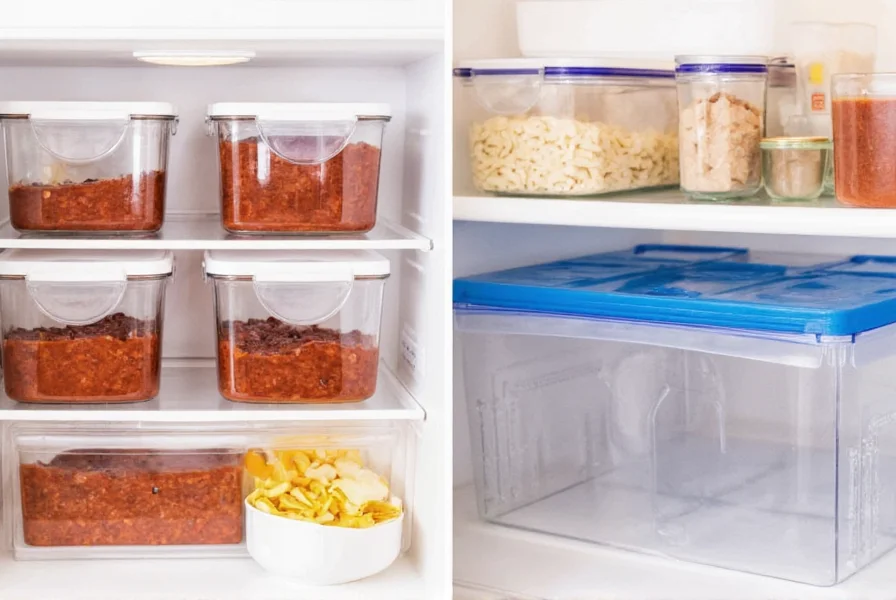Leftover chili doesn't have to mean repetitive reheating. With proper handling and creative thinking, your extra chili can become the foundation for entirely new dishes that satisfy different cravings while reducing food waste. This guide provides tested methods to maximize your chili leftovers while maintaining food safety.
Food Safety First: Handling Leftover Chili Properly
Before exploring creative applications, understand proper storage fundamentals. Leftover chili should cool within two hours of cooking and transfer to shallow containers for rapid cooling. Refrigerated chili remains safe for 3-4 days when stored below 40°F (4°C). For extended preservation, freeze portions in labeled containers with cooking dates. Thaw frozen chili overnight in the refrigerator rather than at room temperature to prevent bacterial growth.

Top Creative Leftover Chili Uses
These practical applications transform your extra chili into distinctive meals while leveraging its rich flavor profile:
1. Chili-Topped Hot Dogs and Sausages
Elevate ordinary hot dogs by replacing standard chili sauce with your homemade version. Simmer hot dogs in chili for 5 minutes or spoon warm chili over grilled sausages. Add diced onions and mustard for classic Cincinnati-style hot dogs. This approach works particularly well with bean-based chili recipes.
2. Chili Cornbread Bake
Create a comforting casserole by layering chili with cornbread batter. Pour chili into a baking dish, top with prepared cornbread mix, and bake at 375°F (190°C) for 25 minutes. The cornbread forms a golden crust while absorbing chili flavors. For extra texture, mix shredded cheese into the cornbread batter before baking.
3. Stuffed Bell Peppers
Transform leftover chili into stuffed peppers by filling halved bell peppers with chili mixture. Top with cheese and bake at 350°F (175°C) for 25-30 minutes until peppers soften. This method works especially well with meat-based chili, creating a balanced meal with vegetables.
4. Chili Macaroni Fusion
Combine cooked elbow macaroni with chili for a hearty chili mac. For creamier texture, mix in a tablespoon of tomato paste and shredded cheddar cheese. Bake with additional cheese on top for 15 minutes at 350°F (175°C) for a comforting casserole version of this popular dish.
5. Breakfast Chili Hash
Start your day differently by transforming chili into breakfast hash. Sauté diced potatoes until golden, then mix with warmed chili. Create wells in the mixture and crack eggs into them. Cover and cook until eggs set for a protein-packed morning meal that utilizes extra chili creatively.
| Leftover Chili Application | Preparation Time | Additional Ingredients Needed |
|---|---|---|
| Chili nacho topping | 5 minutes | Tortilla chips, cheese, sour cream |
| Chili cornbread bake | 30 minutes | Cornbread mix, cheese |
| Stuffed bell peppers | 40 minutes | Bell peppers, cheese |
| Chili macaroni fusion | 20 minutes | Macaroni, cheese, tomato paste |
| Breakfast chili hash | 25 minutes | Potatoes, eggs, onions |
Storage Guidelines for Maximum Leftover Chili Uses
Proper storage extends your options for creative leftover chili uses. Divide large batches into meal-sized portions before refrigerating or freezing. Glass containers maintain chili quality better than plastic, but ensure proper headspace for expansion when freezing. When reheating, bring chili to 165°F (74°C) internal temperature to ensure food safety. Avoid repeated reheating cycles, which degrade texture and flavor.

Ingredient Adjustments for Leftover Transformations
Leftover chili often benefits from minor adjustments when repurposing. If your chili has thickened during storage, add broth or tomato juice when incorporating it into new dishes. For overly spicy chili, balance with dairy products like sour cream or cheese in your new creations. Consider adding fresh herbs like cilantro or parsley to refresh flavors when transforming leftovers into new meals.
FAQ: Common Leftover Chili Questions
How long can I safely keep leftover chili in the refrigerator?
Properly stored leftover chili remains safe to eat for 3-4 days in the refrigerator when kept below 40°F (4°C) in airtight containers. Always check for signs of spoilage like sour smell, mold, or unusual texture before consuming.
Can I freeze leftover chili for future creative uses?
Yes, chili freezes exceptionally well for 4-6 months when stored in airtight containers or heavy-duty freezer bags. Portion into meal-sized amounts for convenient future use. Thaw overnight in the refrigerator before repurposing into dishes like chili mac or stuffed peppers.
What's the best way to refresh leftover chili before repurposing?
Revive leftover chili by gently reheating with a splash of broth or tomato juice to restore moisture. Stir in fresh herbs like cilantro or a squeeze of lime juice to brighten flavors. For thicker applications like nacho topping, thin with additional liquid to achieve proper consistency.
Can I use leftover white bean chili in the same ways as traditional chili?
White bean chili works well in most applications but may require slight adjustments. Its milder flavor profile pairs excellently with cornbread and works beautifully as a topping for baked potatoes. When using in casseroles, consider adding extra spices to maintain flavor intensity after baking.











 浙公网安备
33010002000092号
浙公网安备
33010002000092号 浙B2-20120091-4
浙B2-20120091-4